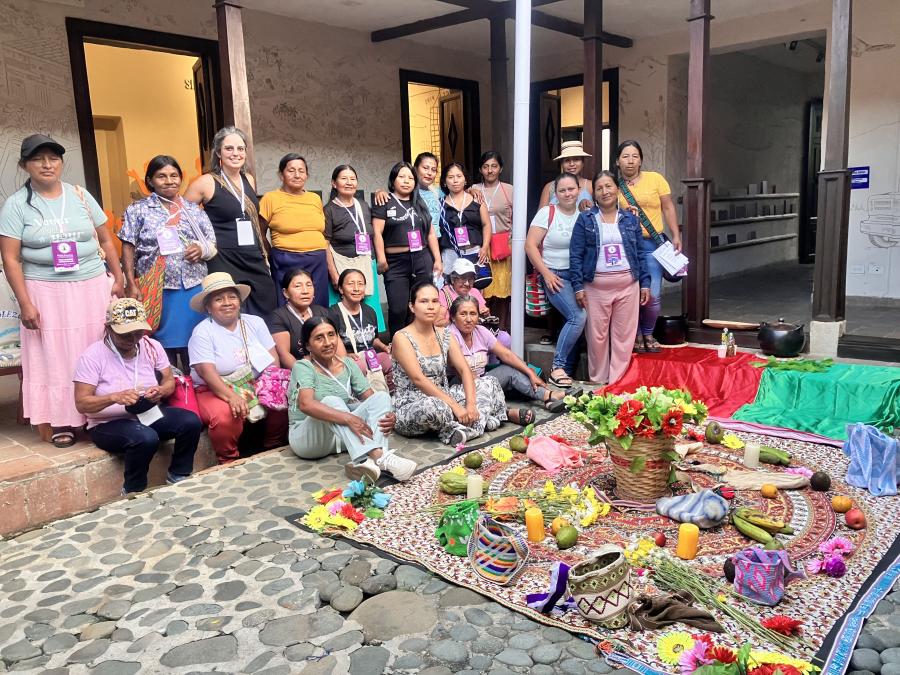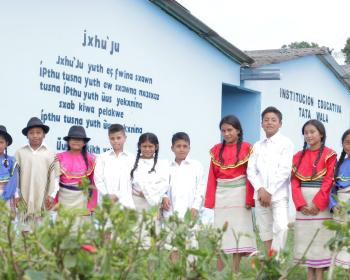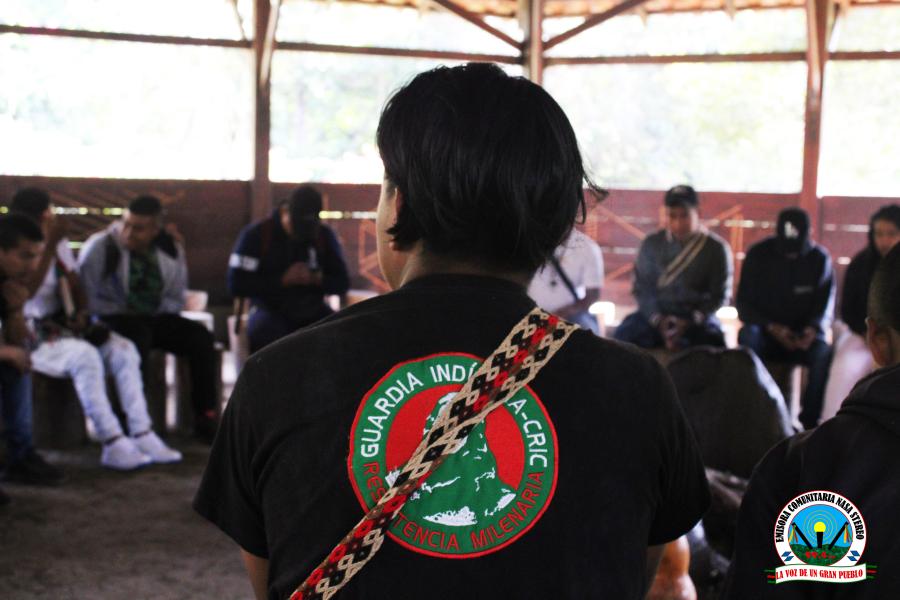Leaders representing grassroots people's movements in Latin America visited Cultural Survival and other organizations and universities in Boston before convening in Amherst, Massachusetts, for the first North American Peoples Global Action meeting. Peoples Global Action (PGA) is an international network of grassroots organizations first convened in Prague, Czech Republic in conjunction with the protests against the IMF and World Bank meetings in the fall of 2001. Leaders from the South called for two sustained global actions: building a movement to stop Plan Colombia and reclaiming water and land rights. The overarching goal of PGA is to create an international movement advocating for local control over resources and economic development while building resistance to undemocratic institutions and policies fueling globalization -- the IMF/World Bank, the WTO, the FTAA, Plan Colombia, and the privatization of resources.
Communities in South America suffer as armed forces fight for power and control over finite natural resources. Four delegates shared personal experiences with Cultural Survival of the violence and terror exacerbated by Plan Colombia.
Edilsa Beltran represents the Grassroots Women's Organization (OFP) of Colombia which seeks "to build civil society and autonomy in the midst of Colombia under violence." She has been listed as a military target for her organizing and human rights work. The city in which she lives, Barrancabermeja, is home to Colombia's largest oil refinery. The paramilitaries in this region, who are connected to the Colombian military, have intensified a campaign of terror and murder to gain control over the area. In Colombia, 80 percent of human rights violations are carried out by the military and paramilitaries. The remaining 20 percent are by the guerillas. Beltran said, "When the paramilitaries arrive at your house, you have three choices: join them, leave your land, or die." Her group recently rescued a 10-year-old boy who had marks drawn on him, a warning that he would be killed with chain-saws by paramilitaries. Beltran said it is the women who suffer most from the war in Colombia: "It is the children of poor women who are recruited by the military. It is also the children of poor women who are recruited by the guerillas. And, it is the children of poor women who are recruited by the paramilitaries...we no longer seek peace, because peace seems like a utopia. Right now, the only hope we have is for an end to the war. But as long as your tax dollars go to pay for weapons in Colombia, the war will not end. This is a shout for help -- for solidarity -- to allow us to live in Colombia."
Ruben Hernandez of the Process of Black Communities (PCN) of Colombia works with African Colombians living in the south, an area where a majority of the U.S. military aid is being sent. The area is known for its abundance of oil, gold, and genetic diversity. "Free trade [such as the FTAA] will facilitate the stealing of our resources," said Ruben. "Already, 80 percent of Afro-Colombian communities live in extreme poverty and make up 50 percent of displaced people in Colombia despite a ruling in the 1991 Constitution granting them legal title to their land. Each day the different armed actors in the conflict, especially the paramilitaries, kill and massacre."
Clemente Wilson represents the Kuna Youth Movement of Panama. The Kuna are the largest of six indigenous groups in Panama. In 1925, they rebelled against Panamanian authority and established the Kuna Yala district, 130,000 acres of territory in the mainland and islands, which was formally recognized by Panamanian law in 1938. The Kuna are known for their successful resistance and struggle for autonomy. For the past 500 years, they have resisted extermination and displacement. Now, "...the Kuna have been fighting the last wave of invasion onto their territory: globalization." Kuna lands, once considered uninhabitable, are valuable to mining and oil companies. "To the indigenous people," said Clemente, "the earth is like our mother and we cannot leave our mother alone. We have to stay; to protect our mother, to protect our land." Despite threats from paramilitary forces, the Kuna have refused to leave their territory. Instead, they are calling on international support for the Panamanian government to respect their culture and autonomy.
Leonilda Zurita of the Six Federations of the Cochabamba Tropics in Bolivia represents more than 35,000 families. In Bolivia, Plan Colombia is called "Plan Dignity." For decades the United States has imposed structural adjustment programs that have resulted in poverty and the displacement of peasants and indigenous peoples as well as increased militarization to eradicate the coca plant. She explained that the coca leaf "is not cocaine. In its natural state, it is a sacred plant for the Bolivian people. It is part of our Andean culture; part of our sovereignty, and our identity.... To protect coca is to protect life." Under the Bolivian constitution it is legal to grow coca to be used in products like shampoo, toothpaste, and teas. Said Leonilda: "Those of us who struggle against globalization are being jailed and threatened with death. We have orphans, widows, people left without arms, without legs.... Plan Dignity is a plan of war and of extinction for peasants and indigenous people." Despite threats from the military and paramilitary, Leonilda continues to fight for the rights of her community. The day before returning to Bolivia, Leonilda was told that her husband and mother were evicted from their home by the military. They are safe, but are now homeless.
Article copyright Cultural Survival, Inc.



